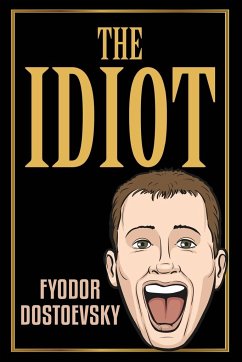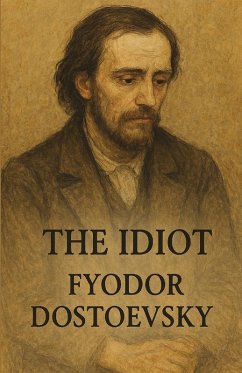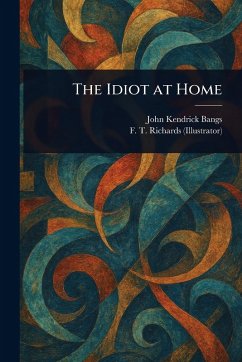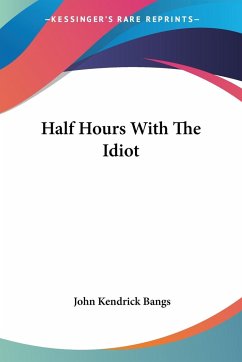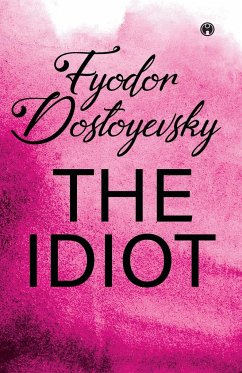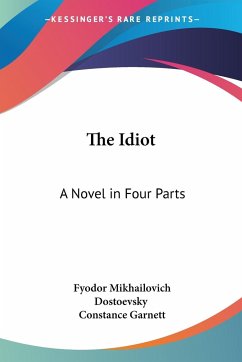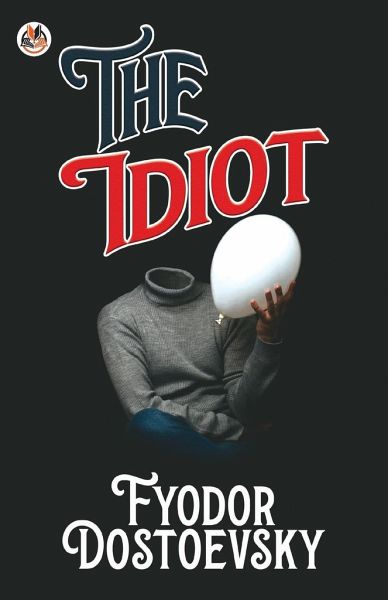
The Idiot

PAYBACK Punkte
14 °P sammeln!
This book recounts the tragedy of being too good. The Idiot does not only reflect on the meaning of life and the effect of death on the living but plunges fearlessly into suffering while at the same time illuminating the enduring beauty of humanity. Accounts what a money-hungry, power-hungry, cold, and manipulative society we're living in. It speaks the truth of our striving human conditions; our emotions which only know the truth of their existence at the moment; yet it is a true and pure novel, like the heart of our unusual but endearing hero, Prince Myshkin: our idiot. The protagonist, Prin...
This book recounts the tragedy of being too good. The Idiot does not only reflect on the meaning of life and the effect of death on the living but plunges fearlessly into suffering while at the same time illuminating the enduring beauty of humanity. Accounts what a money-hungry, power-hungry, cold, and manipulative society we're living in. It speaks the truth of our striving human conditions; our emotions which only know the truth of their existence at the moment; yet it is a true and pure novel, like the heart of our unusual but endearing hero, Prince Myshkin: our idiot. The protagonist, Prince Myshkin bears an unfathomable similarity with the author himself as he talks about epilepsy and his struggles associated with it.





